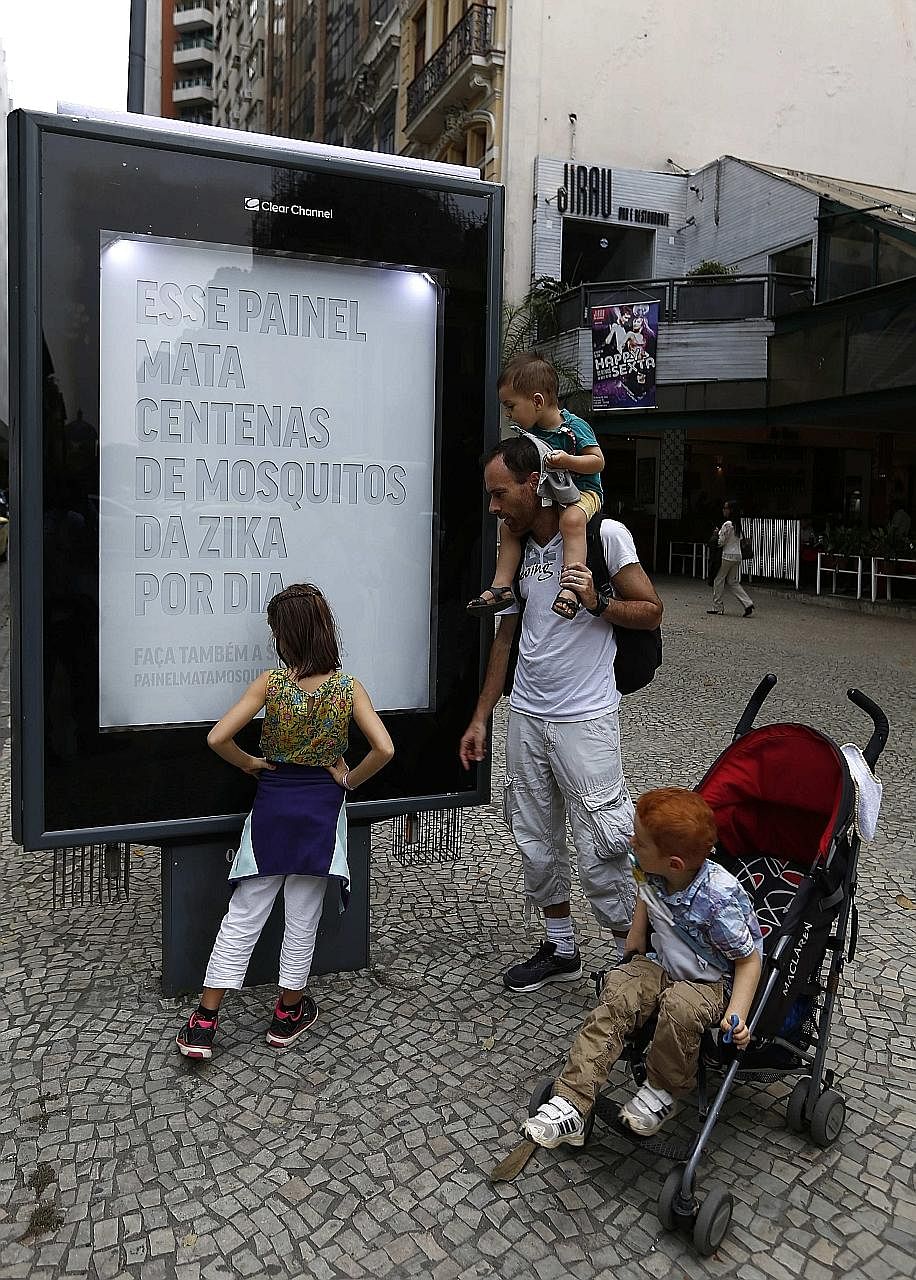Anxiety about Zika is rising in the United States as it gets hotter and summer is around the corner.
Preventive measures to stop the spread of the disease and deal with the virus responsible are already well under way, particularly in Texas and other Gulf Coast states.
"Puerto Rico is seen as the bellwether for the US," said Ms Debra Lubar, director of the office of appropriations at the US Centres for Disease Control and Prevention.
Already, there have been 570 locally acquired cases of Zika reported in the US territory.
While there has been no local mosquito-borne transmission in the US itself, there are 426 travel-associated Zika cases, meaning the virus was picked up outside the US.
"The virus is likely to appear in areas that are warmer for longer... I wouldn't be surprised if we see a transmission in Texas or on the Gulf Coast this summer," said Dr Joseph Domachowske, a paediatric infectious disease expert at Upstate University Hospital in Syracuse.

Florida is also susceptible because of the high number of travellers entering the state from Zika-affected countries in South America, said public health sciences professor John Beier from the University of Miami Miller School of Medicine.
Miami officials have already stepped up efforts against mosquito-borne illnesses. One way to prevent a large outbreak of the Zika virus in the US is to prevent widespread breeding of the Aedes aegypti mosquito, which is known to transmit the virus.
Ms Gayle Love, a spokesman for Miami-Dade county's department of solid waste management, said it has run newspaper, radio and television advertisements and social media campaigns to raise public awareness. "This year, we started much earlier for a longer period and we invested more dollars into it."
She said US$150,000 (S$204,000) - more than double the regular annual budget - was spent on public education and outreach from February to last month, and there are plans to spend more over the next five months.
"The increase in expenditures has been approved by our mayor so that we can aggressively communicate the 'Drain and Cover' message to our more than 2.7 million residents," she said.
On the medical front, the Texas Children's Hospital is planning on opening a clinic later this year for patients who have travelled to Zika-affected areas, and Upstate Medical University last week launched the Global Maternal Child and Paediatric Health Programme, where research on Zika is a major priority.
Dr Domachowske, who is director of the programme, said: "We are working towards a vaccine for Zika as fast and furious as we can with the resources that are available."
He added that clinical trials for a vaccine are likely to start early next year.
In February, the Obama administration had asked Congress to approve US$1.9 billion in new supplemental funding to help battle Zika, but thus far, only US$586 million has been redirected from Ebola response programmes.
New research has found a stronger association between Zika infection and neurological disorders and foetal malformations such as microcephaly, which results in children born with unusually small heads, according to the World Health Organisation.
The authorities in Brazil, the worst-hit country, on Wednesday disclosed that 57 babies born with microcephaly related to Zika had died since last October.
